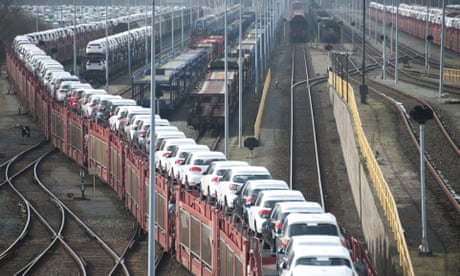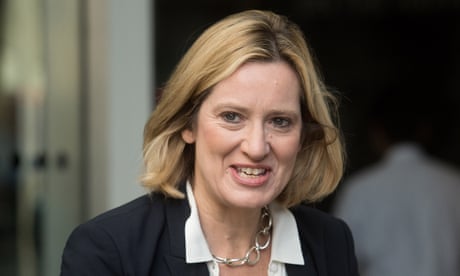Dennis Freedman in The Dawn
Young Michael Slater is fidgeting at the crease.
Scratch. Shake. Rub. Repeat.
His career is off to a flyer. The New South Welshman averages nearly 50. In 1995, openers don’t average anything near that much. For context, Mike Atherton only averages 38.
The Hobart pitch looks clean. Wasim has the ball. The recipe is complete.
New wicket, master tradesman and some chilly dense Hobart weather.
The cable knit sweaters are on. Even those with extra natural padding are wearing them.
Old timers predict that there will be some cut and swing. In their minds, it’s as certain as death and taxes. But it is likely to only last a few overs until the shine is gone from the ball. If Slater can connect with a cut shot or two, the danger will quickly subside.
Wasim has a lazy 12 step run up. Perhaps it is only 10? The left arm swings around like an angry propeller on a Spitfire. The ball pitches on a length, cuts in hard and strikes the pad.
Slater had no chance. His fidgeting hasn’t been demonstrative enough to wake up his feet. They didn’t move.
An appeal. A really good appeal. Not Out.
Hitting outside the line? Too high?
The replay indicates that many an umpire would have raised the finger.
The Pakistanis share a knowing wink. Darrell Hair looks concerned. He has just realised that this will be a tough morning for him.
Slater shakes it off. We expected this, right? It is not as though Wasim wastes too many new balls in these conditions.
Ball 2.
Same shape. Slightly quicker. Slightly shorter.
The 25-year-old Slater gets in behind it and scrubs a defensive prod to short cover.
It looked awkward.
Where feet were expected to move, they didn’t. Michael Slater often looked awkward.
Back in 1995, openers were expected to look in control. Stylish. Dapper. Like Fred Astaire dancing in the rain. Slater could be that guy, but it wasn’t his natural happy place. He was more Vanilla Ice. In your face. New, exciting and baggy clothes.
He just wanted to make runs. Quickly.
Ball 3.
The sucker ball.
Pushed across the right hander and holding its line. The keeper takes it in front of first slip. A nervous Slater doesn’t bite. He wanted to. It was his ball. That mad cut shot wanted to come out of its cage. It didn’t.
Maybe if it were Steve Harmison bowling and not Wasim Akram? Surely he would have pounced at it then?
Slater continues to fidget at the crease. Perhaps this is where Steve Smith learnt it from?
Ball 4.
A half volley outside off stump. Not super quick, but still sharp. The batsman strides out to meet it. Almost overstretching.
Then he defends.
Wasim has got inside his head. Why didn’t that ball swing? Why didn’t I give it hell? It was there to hit. I’ll get him next time.
Mark Taylor is at the other end. He is practising the flick off his pads. It would be a dangerous shot against Wasim. Across the line. An invitation to produce a leading edge.
Ball 5
It is a repeat of ball 2. This time Slater jumps a little as he plays it. But to be fair, he is well behind it. Surely he feels more comfortable now? Apart from the first ball, the others have offered little danger to a set batsman. Like jelly in a blast chiller, Slater sets at a rapid speed. But he is not set yet. However, he is close.
Ball 6
Like Slater, Wasim also sets quickly. This is his effort ball. A full in-swinging yorker. We’ve seen it before. Close your eyes and you can picture it. Mitchell Starc took this dream and copied it.
Slater gets hit on the toe. His bat is still on its journey towards the ball. His bat is too slow. Wasim is too fast.
Umpire Hair fires him.
Peak Wasim. Classic Wasim. Just Wasim.
A tease of what he could do. A sense of what he would do. Then he did it.
He is like a gift from the gods. What is not to love?
What is not to respect?
Fast forward five years.
The dark clouds of match fixing would soon fall over Pakistani cricket.
They were always threatening to come in from the north, as they circled above the Kyber Pass. Now they had arrived.
These clouds set a waypoint for Wasim Akram. They threatened to unleash a thunderstorm from hell.
Winds. Hail. Lightning.
Instead, when one looks up at them, they are full of potential menace, yet never quite create more than a minor inconvenience.
These clouds are known as the Qayyum Report.
The typed pages of investigation that are contained within it are Pakistan’s attempt to look into corruption within the national team.
It opens up like a well laid out crime novel. A slow and steady start. A scene being set. Some explosive twists. Inconclusive conclusions and a reader left wanting for more.
Justice Qayyum, the author, is also fallible as we discover later. A cricket lover. A man working essentially with many contradicting first hand accounts and hearsay. His heroes are under attack.
But one in particular gives him the most troublesome time.
Wasim.
The Qayyum Report is clear in its condemnation of Pakistan’s greatest ever swing bowler.
Ata-ur-Rehman swore on oath that he was offered 200,000 rupees by skipper Akram to perform poorly in an ODI against New Zealand in Christchurch in 93/94.
Aamir Sohail had, on oath, also spoken ill of Akram.
Akram then, using his own personal credit card, paid for Ata-ur-Rehman to fly to London. Here, Rehman visited Akram’s lawyer and signed an affidavit supporting Wasim against the existing one penned by Sohail.
Essentially, Akram paid for Rehman’s travel so that he could perjure himself.
Akram does not dispute that he paid for Rehman’s ticket.
Rehman originally alleged that Akram threatened to have him “fixed” if he didn’t follow orders. Rehman then retracted his story after Akram paid for that flight to London to visit his lawyer. Rehman decided that, in fact, Sohail had coerced him to speak against Akram.
Perjury. A broken witness.
However, the great Imran Khan also testified that Rehman had told him of Akram’s approaches.
It is recorded for all eternity in the Qayyum Report.
Imran doesn’t lie, does he? (Politicians don’t lie?)
Other allegations are made against Wasim Akram in the Qayyum report. However, they are the classic ‘he says / she says’-type argument. They focus on Akram feigning injury, bowling badly and manipulating batting orders so as to lose matches.
They are difficult to prove either way. There is little corroboration.
Justice Qayyum dismisses them.
However, back on the match fixing charge where there are elements of corroboration, Quyyam states the following:
“As regards to allegation one on its own, this commission is left with no option but to hold Wasim Akram not guilty of the charge of match-fixing. This the Commission does so only by giving Wasim Akram the benefit of the doubt.”
In isolation, natural justice clears Akram.
Not guilty.
We can all move on with our lives. Akram is still a national hero.
Or is he?
Qayyum goes on to say:
“However, once this commission looks at the allegations in their totality, this commission feels that all is not well here and that Wasim Akram is not above board. He has not co-operated with this Commission. It is only by giving Wasim Akram the benefit of the doubt after Ata-ur-Rehman changed his testimony in suspicious circumstances that he has not been found guilty of match-fixing. He cannot be said to be above suspicion.” [Emphasis added.]
So Akram is found not guilty because he helped finance a witness to change his story under oath?
What nonsense is this?
Think about it for just a second. Pause and reflect.
If this were a criminal trial, it wouldn’t be hard to argue that Akram tampered with a witness.
Unbelievable.
“It is, therefore, recommended that he be censured and be kept under strict vigilance and further probe be made either by the Government of Pakistan or by the Cricket Board into his assets acquired during his cricketing tenure and a comparison be made with his income. Furthermore, he should be fined Rs300,000.”
The classic Clayton’s verdict. You aren’t guilty, but please pay a fine for the little bit of guilt that you do harbour.
“More importantly, it is further recommended that Wasim Akram be removed from captaincy of the national team. The captain of the national team should have a spotless character and be above suspicion. Wasim Akram seems to be too sullied to hold that office.” [Emphasis added.]
Stained. But not guilty.
It is important to note that the Qayyum report was not a criminal trial. This impacts the burden of proof.
“.....it must be stated that the burden of proof is somewhere in between the criminal and normal civil standard.”
Akram argued that the burden of proof should be high. But of course, he would. The higher the burden of proof, the harder it is to convict him.
“It is not as high as the counsel for Wasim Akram recommended, that the case needs to be proven beyond a reasonable doubt.
This is a commission of inquiry and not a criminal court of trial so that standard need not be high.”
Its outputs are recommendations. Typically, outputs from these inquiries are followed by prosecutors and governments. As they should.
Pakistan moved on after this event. They purged themselves. Apparently, they chose to reject corruption in cricket.
Then Butt, Asif and Amir.
Then Amir back in the Pakistan national side after those with memories, including Misbah and Hafeez, initially protested.
Corruption - 1
Sanctity - 0
But the story takes another turn.
While all this is happening, Wasim Akram remained a powerful man. He took more power. His voice is now the most powerful in Pakistani cricket.
He becomes a commentator. He models. He tries coaching in the IPL and being an ambassador in the PSL.
He is Pakistan’s Mr Everywhere.
But if you don’t clean up filth properly, it festers and mould grows and eventually it rears its head once again.
Justice Qayyum later recalls that he had a “soft corner” for Wasim.
“He was a very great player, a very great bowler and I was his fan, and therefore that thing did weigh with me.”
Qayyum admits he was lenient to “one or two of them” based on reputation and skill.
Qayyum, like all men, is guilty of being fallible. But what a time to lose control to your weakness.
Can we deduce from this that without personal bias, Qayyum may have found Wasim guilty of match fixing?
For a swing bowler, Akram knew how to live right on the slippery edge of right and wrong.
He was almost a match fixer, but paid a fine for being one.
He coerced a witness to change his sworn testimony against him by using his own funds.
He was stripped of the captaincy.
All facts. Indisputable.
Yet, you all still adore him like a god.
You place his playing deeds ahead of the damage he did to the game.
Does being good at something absolve one from society’s judgement about what is right and wrong?
Should we allow that Akram is afforded a voice on our television screens, our newspapers, mingles with players and coaches professional teams?
Would you allow Chris Cairns to do it? He was found not guilty by a UK court of lying about match fixing.
Why is Wasim any different? Is it because Wasim was a better player than Cairns?
Then how about those actually found guilty of crimes against the sport of cricket?
Shane Warne is a convicted drug cheat and took money from bookies. Why do you cower to him?
Mark Waugh is an Australian selector. An official position. He also took money from bookies. Having said that, Cricket Australia has official bookmaker partners, so they aren’t even pretending to take this seriously.
I am not talking about those who get a speeding fine here.
I am talking about individuals who cheated the game. Put their selfishness ahead of the greater good. Frauds.
Why does the game owe these people anything?
Cricket is not society. It does not automatically have to bestow a second chance on anyone. Instead, it is the duty of everyone associated with the game to protect it.
Yet when it comes to our heroes, those who swung a ball in mysterious ways or batted like silk, we turn a blind eye.
Wasim is Wasim. He has made his choices. He has vandalised the sport. As has Warne. As has Mark Waugh.
Rod Marsh once placed a bet against a team he was playing in. Australia lost. Rod Marsh won big.
Rod Marsh is now the Chairman of Selectors for Cricket Australia.
If I were caught breaking serious rules at work, I would get fired. There is no way in hell that my employer would ever have me back.
In some industries, if I break the rules, I can never work in them again.
The legal profession. Working with children. Policing.
No second chances. Respect the fortunate position you have obtained or leave forever.
If cricket really wants to see corruption as a significant foe, why does it not take the same stance?
So next time you share a view with me about what Wasim has said, or what Warne did on the pitch, forgive me if I don’t partake in your idolisation.
For Wasim is not my idol and it is him who is to blame.




